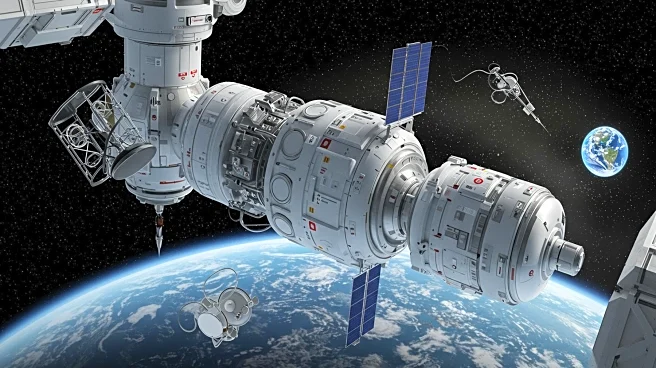What's Happening?
The Expedition 73 crew aboard the International Space Station is conducting research on how space affects human physiology, focusing on the eyes, brain, and circulatory system. NASA astronauts are performing eye exams and balance tests as part of the CIPHER study. The crew is also involved in spacesuit maintenance and quantum physics experiments. Roscosmos cosmonauts are studying blood flow in microgravity, while JAXA's Flight Engineer is working on the Cold Atom Lab.
Why It's Important?
Understanding the physiological effects of space travel is crucial for the safety and health of astronauts on long-duration missions. The research conducted by the ISS crew provides insights into visual adaptation, cognitive changes, and circulatory system responses in microgravity. These findings are essential for developing countermeasures to protect astronauts during future missions to the Moon and Mars. The studies also contribute to the design of advanced tools for monitoring and maintaining astronaut health.
What's Next?
The ISS crew will continue their research, focusing on refining methods to understand and mitigate the effects of microgravity on human health. The data collected will inform the development of technologies for future space missions. NASA plans to use the findings to enhance astronaut training and improve mission planning for long-duration exploration.












